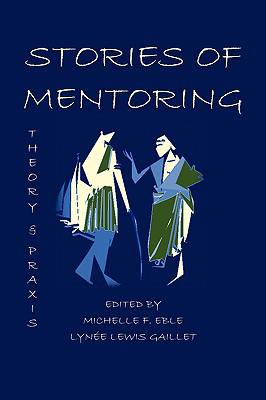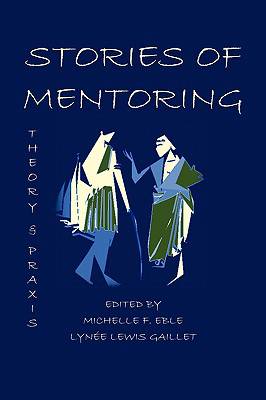
- Retrait gratuit dans votre magasin Club
- 7.000.000 titres dans notre catalogue
- Payer en toute sécurité
- Toujours un magasin près de chez vous
- Retrait gratuit dans votre magasin Club
- 7.000.000 titres dans notre catalogue
- Payer en toute sécurité
- Toujours un magasin près de chez vous
Stories of Mentoring
Theory and Praxis
104,95 €
+ 209 points
Description
STORIES OF MENTORING: THEORY AND PRAXIS defines the current status of mentoring in the field of composition and rhetoric by providing both snapshots and candid descriptions of what that mentoring means to those working in the discipline. Seventy-eight Contributors offer a wide array of evidence and illustrations in an effort to define what mentoring entails, its important benefits and consequences, and its role in creating the future character of the field. Readers will find program descriptions and critiques, testimonials and personal anecdotes, copies of correspondence and e-mail messages, term projects and assignments, accounts of forged friendships and peer relationships (some good, some not-so-good), both new paradigms and familiar constructs for successful mentoring, tales of pregnancy and mothering, chronicles of both administrative nightmares and dream solutions, and inspiring stories revealing the character of those rare individuals who embody the term mentor. LYNÉE LEWIS GAILLET is associate professor of rhetoric and composition at Georgia State University. She is Past-President of the Coalition of Women Scholars in the History of Rhetoric and Composition and Past-Executive Director of the South Atlantic Modern Language Association. Gaillet is the editor of SCOTTISH RHETORIC AND ITS INFLUENCES (1998) and author of essays addressing contemporary writing instruction and the history of rhetoric/writing practices in in JAC, The Journal of Basic Writing, Rhetoric Review, Issues in Writing, Rhetoric Society Quarterly, Composition Studies, Technical Communication Quarterly, The Journal of Teaching Writing, and English Journal. MICHELLE F. EBLE is associate professor of English and Director of Undergraduate Studies in the Department of English at East Carolina University. Her work on the influence of technology and rhetorical theory on writing practices and organizational cultures has appeared in Computers and Composition, Technical Communication, and Technical Communication Quarterly. LAUER SERIES IN RHETORIC AND COMPOSITION, Series Editors: Catherine Hobbs, Patricia Sullivan, Thomas Rickert, and Jennifer Bay
Spécifications
Parties prenantes
- Editeur:
Contenu
- Nombre de pages :
- 348
- Langue:
- Anglais
- Collection :
Caractéristiques
- EAN:
- 9781602350731
- Date de parution :
- 18-09-08
- Format:
- Livre relié
- Format numérique:
- Genaaid
- Dimensions :
- 152 mm x 229 mm
- Poids :
- 681 g






